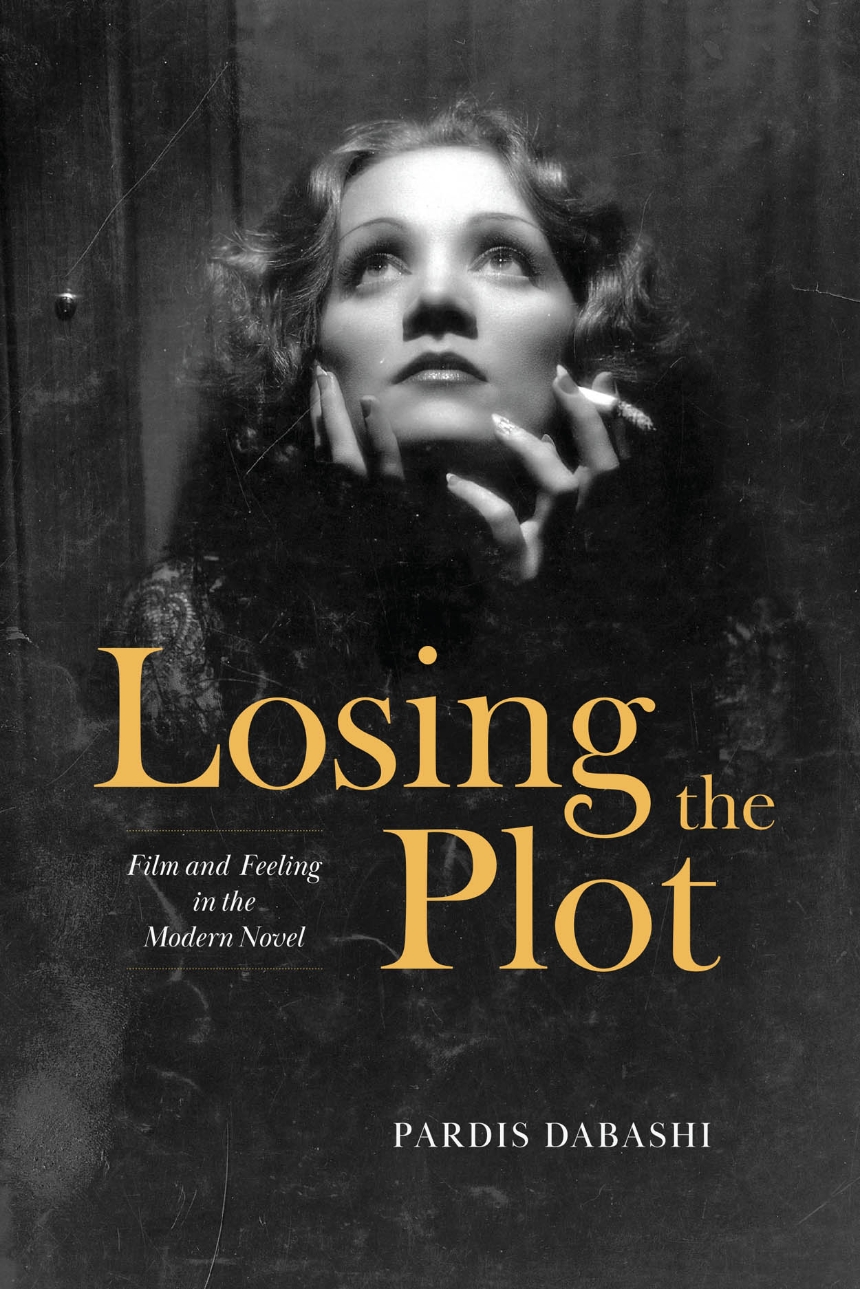Losing the Plot
Film and Feeling in the Modern Novel
An examination of the relationship between literature and classical Hollywood cinema reveals a profound longing for plot in modernist fiction.
The modernist novel sought to escape what Virginia Woolf called the “tyranny” of plot. Yet even as twentieth-century writers pushed against the constraints of plot-driven Victorian novels, plot kept its hold on them through the influence of another medium: the cinema. Focusing on the novels of Nella Larsen, Djuna Barnes, and William Faulkner—writers known for their affinities and connections to classical Hollywood—Pardis Dabashi links the moviegoing practices of these writers to the tensions between the formal properties of their novels and the characters in them. Even when they did not feature outright happy endings, classical Hollywood films often provided satisfying formal resolutions and promoted normative social and political values. Watching these films, modernist authors were reminded of what they were leaving behind—both formally and in the name of aesthetic experimentalism—by losing the plot.
The modernist novel sought to escape what Virginia Woolf called the “tyranny” of plot. Yet even as twentieth-century writers pushed against the constraints of plot-driven Victorian novels, plot kept its hold on them through the influence of another medium: the cinema. Focusing on the novels of Nella Larsen, Djuna Barnes, and William Faulkner—writers known for their affinities and connections to classical Hollywood—Pardis Dabashi links the moviegoing practices of these writers to the tensions between the formal properties of their novels and the characters in them. Even when they did not feature outright happy endings, classical Hollywood films often provided satisfying formal resolutions and promoted normative social and political values. Watching these films, modernist authors were reminded of what they were leaving behind—both formally and in the name of aesthetic experimentalism—by losing the plot.
296 pages | 47 halftones | 6 x 9 | © 2023
Literature and Literary Criticism: American and Canadian Literature
Reviews
Table of Contents
Introduction: The Arts of Inconsequence
1: Nella Larsen and Greta Garbo: On (In)Consequence
Première Entr’acte
2: Djuna Barnes and Marlene Dietrich: On the Security of Torment
Deuxième Entr’acte
3: William Faulkner and Early Film: On the Limits of the Present
Coda: Max Ophuls: On Love and Finitude
Acknowledgments
Notes
Index
1: Nella Larsen and Greta Garbo: On (In)Consequence
Première Entr’acte
2: Djuna Barnes and Marlene Dietrich: On the Security of Torment
Deuxième Entr’acte
3: William Faulkner and Early Film: On the Limits of the Present
Coda: Max Ophuls: On Love and Finitude
Acknowledgments
Notes
Index
Awards
Modernist Studies Association: Modernist Studies Association--First Book Prize
Won
